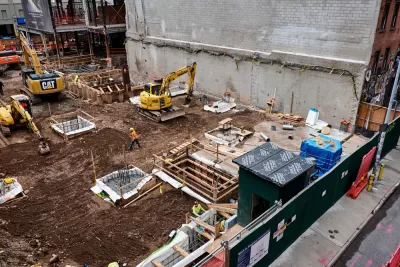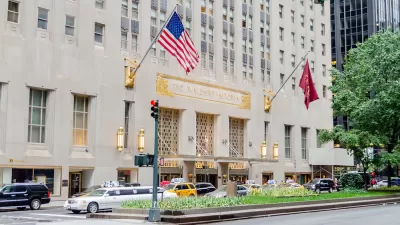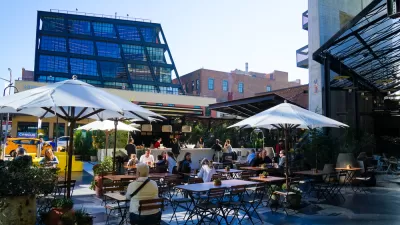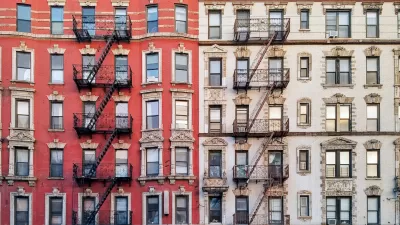The New York Times reports details about the de Blasio Administration's negotiations concerning land use regulations that will impact industrial and hotel business. With a re-election campaign looming in 2017, the story reveals a lot about the politi

David Goodman follows up on a list of regulations proposed by Mayor Bill de Blasio in late 2015 to protect manufacturing businesses from hotel construction encroaching into industrial areas around the city.
"…a draft of those rules, which the City Council was told to expect by October, has yet to be written," repots Goodman. "Instead, without an announcement, the de Blasio administration set aside the effort in favor of a much broader and more ambitious one favored by an influential union, the New York Hotel and Motel Trades Council."
Goodman reports on the story as an example of New York City Hall sausage making with broad impacts for land use in the city. Figuring out why the New York Hotel and Motel Trades Council would agree to a law limiting hotel development in certain areas isn't difficult. According to the proposed rules, "[s]pecial permits would be required to build hotels in certain industrial areas of the city. That would force hotel owners to seek City Council approval for projects — most likely subjecting the projects to union labor requirements." Instead of requiring special permits for hotel construction only in Industrial Business Zones (IBZs), as the original proposal called for, the new rules would apply the rules to manufacturing zones citywide, "putting the administration in potential conflict with a far greater number of hotel owners." The new approach affects three times as much of the city, according to City Hall sources mentioned in the article.
FULL STORY: Unlikely Ally and Quiet Shift in de Blasio Plan to Protect Industrial Jobs

Maui's Vacation Rental Debate Turns Ugly
Verbal attacks, misinformation campaigns and fistfights plague a high-stakes debate to convert thousands of vacation rentals into long-term housing.

Planetizen Federal Action Tracker
A weekly monitor of how Trump’s orders and actions are impacting planners and planning in America.

In Urban Planning, AI Prompting Could be the New Design Thinking
Creativity has long been key to great urban design. What if we see AI as our new creative partner?

King County Supportive Housing Program Offers Hope for Unhoused Residents
The county is taking a ‘Housing First’ approach that prioritizes getting people into housing, then offering wraparound supportive services.

Researchers Use AI to Get Clearer Picture of US Housing
Analysts are using artificial intelligence to supercharge their research by allowing them to comb through data faster. Though these AI tools can be error prone, they save time and housing researchers are optimistic about the future.

Making Shared Micromobility More Inclusive
Cities and shared mobility system operators can do more to include people with disabilities in planning and operations, per a new report.
Urban Design for Planners 1: Software Tools
This six-course series explores essential urban design concepts using open source software and equips planners with the tools they need to participate fully in the urban design process.
Planning for Universal Design
Learn the tools for implementing Universal Design in planning regulations.
planning NEXT
Appalachian Highlands Housing Partners
Mpact (founded as Rail~Volution)
City of Camden Redevelopment Agency
City of Astoria
City of Portland
City of Laramie





























